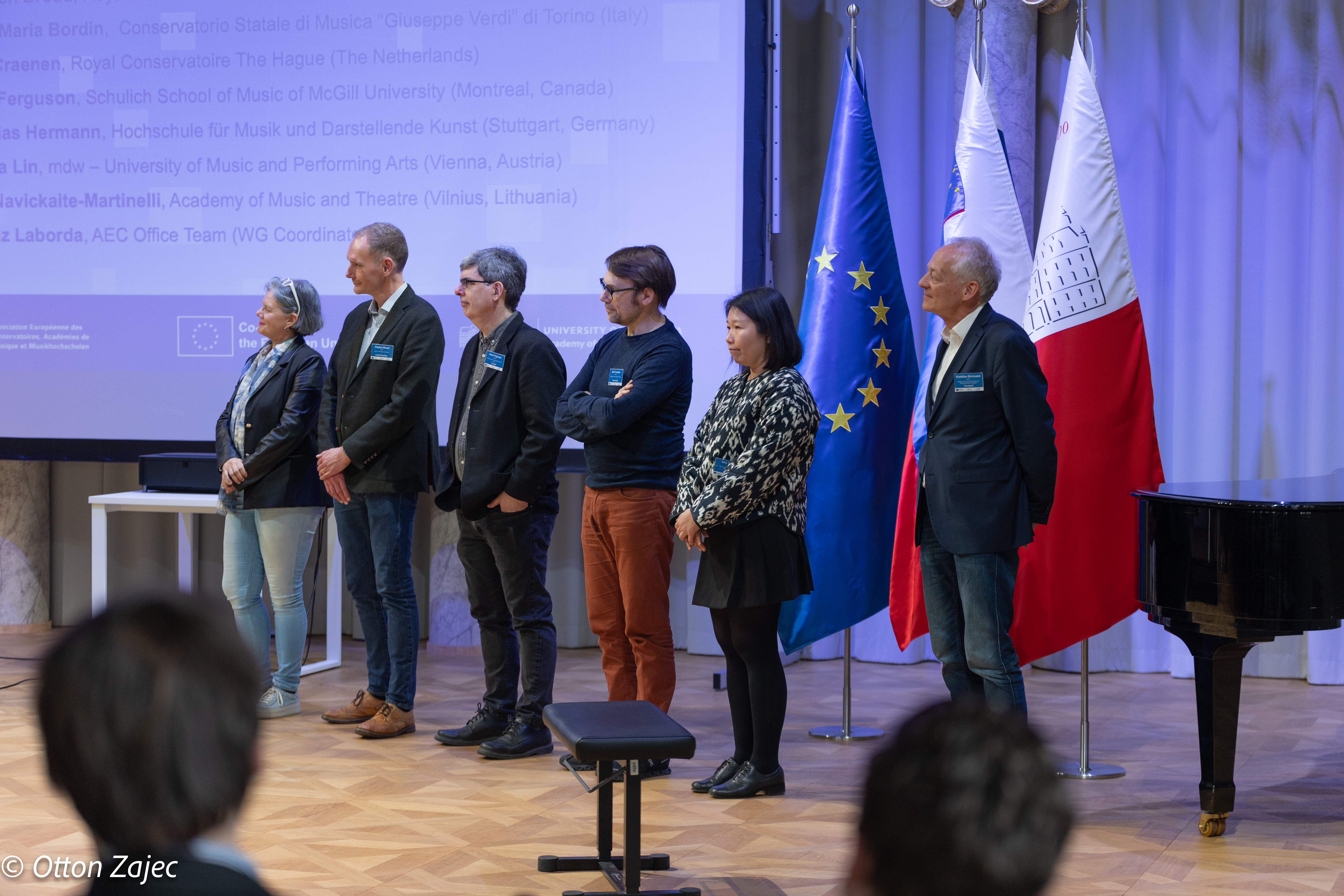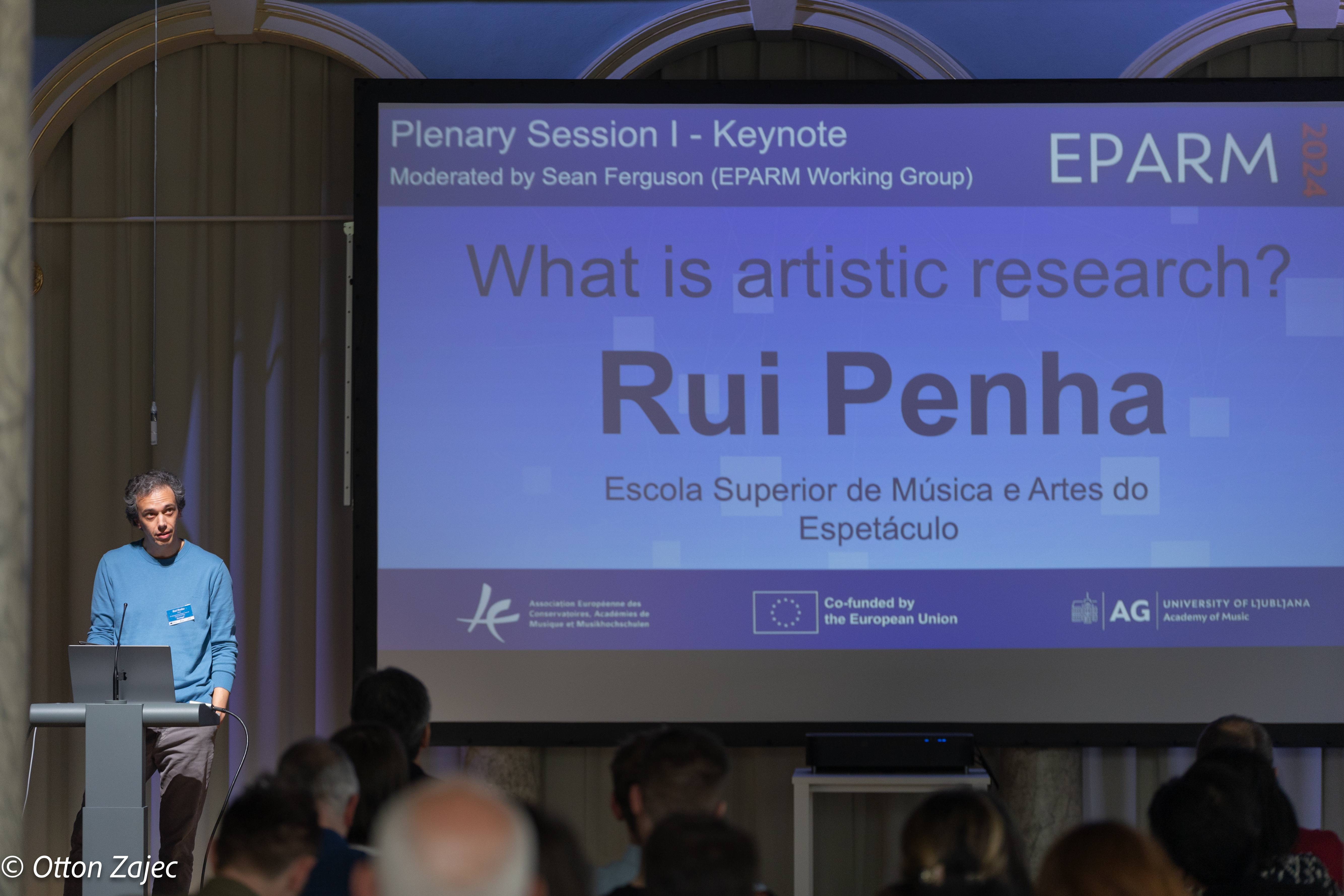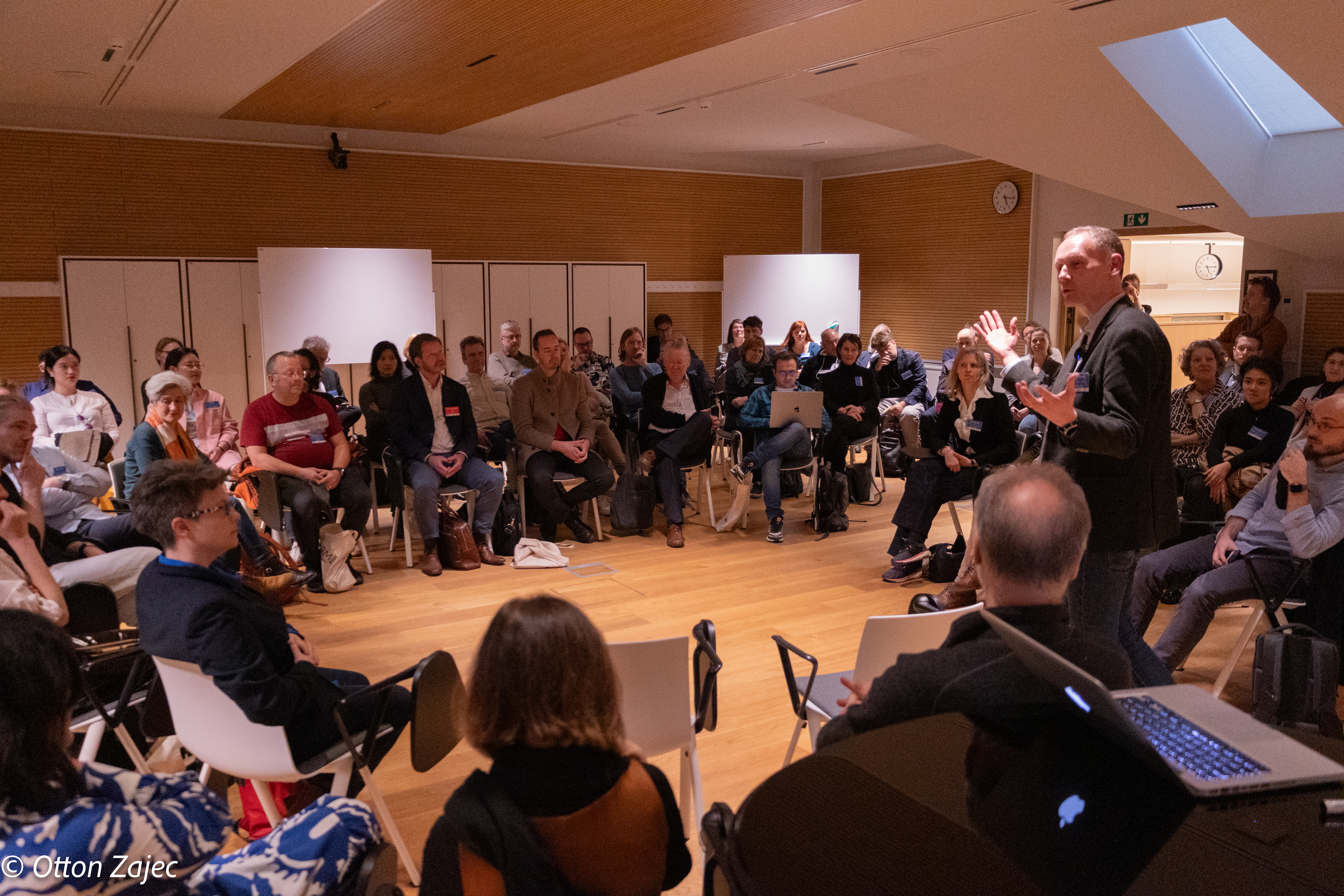The 11th edition of the European Platform for Artistic Research in Music (EPARM) was held at the Academy of Music in Ljubljana from March 21st to March 23rd, 2024.
This year’s edition attracted a record number of 183 participants from 27 countries, offering a vibrant forum for diverse backgrounds and expertise to engage in enriching discussions, networking, and the exchange of innovative ideas and approaches within artistic research in music.

The EPARM 2024 featured 21 Parallel Sessions and 12 ‘Not-the-L8Nite performances’, which were the result of the selection of the Call for Proposals prioritising presentations exploring aspects such as Artistic Research in the Anthropocene, social contexts, relationships with repertoires old and new, balancing theory and practice, interrogating innovation, and cultivating nurturing research cultures in music.
The program started with a pre-conference introductory session to EPARM and its work, presented by EPARM Working Group (WG) members and project presentations from the Academy of Music University Ljubljana, followed by an opening event. The opening event kicked off with a musical performance by the Saxophone ensemble 96, followed by welcoming remarks from Karolina Šantl-Zupan, Vice Dean for Science and Arts Affairs at the University of Ljubljana’s Academy of Music, Finn Shumacker, Executive Director of the AEC, and Lina Navickaitė-Martinelli, representative of the EPARM WG.

This year’s keynote speech, titled “What is Artistic Research?”, was delivered by Rui Pehna from the Escola Superior de Música e Artes do Espetáculo in Porto, Portugal.
During his presentation, he proposed that artistic research revolves around generating and exchanging relational knowledge, enabling a dialogue with the world. He illustrated how artistic research creates an environment supportive of the creation and dissemination of relational knowledge, providing participants with insights into its transformative potential.
The OpenSpace session discussed the Future of Artistic Research.
The session was facilitated by Stephen Broad (EPARM WG Chair), and attendees were invited to contribute their thoughts and ideas on the conference theme through open group discussions using the OpenSpace approach.
Participants were invited to set the agenda and lead discussions on topics that mattered most to them.

This year’s Round Table opened with a musical introduction from Flute Quartet Inuaria. Panellists included Lies Colman from Koninklijk Conservatorium Den Haag (The Netherlands), Johannes Kretz from mdw – University of Music and Performing Arts, Vienna (Austria), Gregor Pompe from Faculty of Arts, University of Ljubljana (Slovenia), and Matthias Hermann from EPARM Working Group, moderated by Lina Navickaite-Martinelli (EPARM WG). The panel explored how artistic research illuminates performers’ co-creative role in transmitting and evolving musical repertoires across various disciplines like early music, jazz, electro-acoustic music, and non-western music cultures, fostering interdisciplinary exchanges.
This year marked the second edition of the ARTEMIS safe space at EPARM, providing participants with the opportunity to offer feedback on the event, with a specific focus on diversity, inclusion, gender equality, and non-discrimination issues.
AEC extends heartfelt gratitude to all those who contributed to making this conference possible, especially the hosting institution in Ljubljana, the EPARM WG members, and the dedicated participants whose contributions and engagement have continuously supported the platform.
The next edition of the European Platform for Artistic Research in Music (EPARM) will take place at the Estonian Academy of Music and Theatre in Tallinn on 3 – 5 April 2025.






